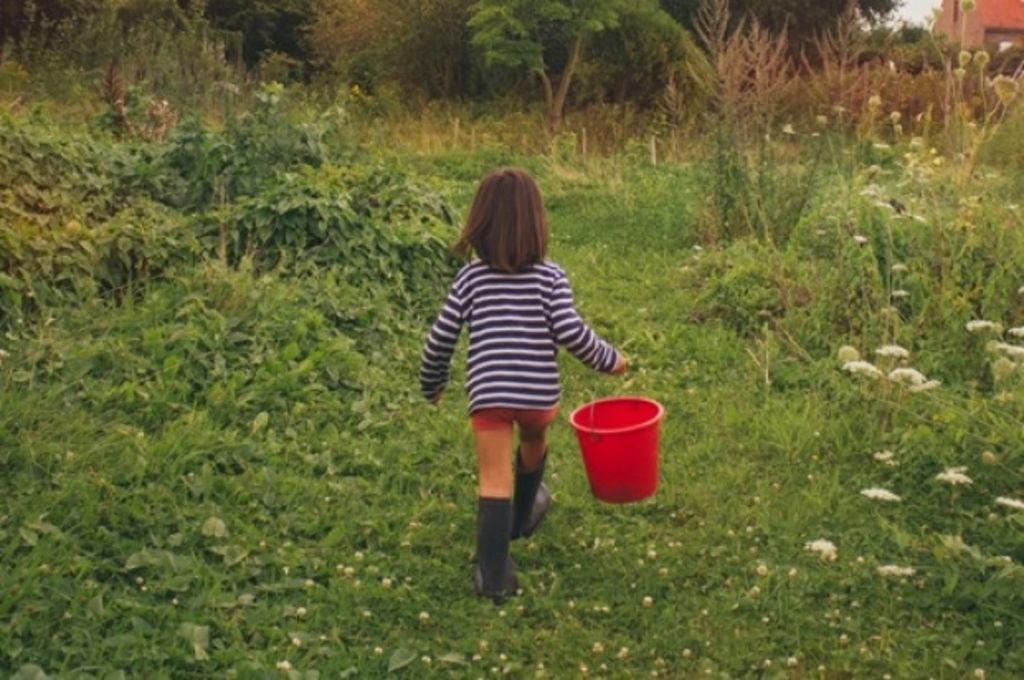Why living in the country can make you happier

Growing up in a small coastal town in Tasmania meant that the city, the “big smoke” (or “the mainland” as Tasmanians rather embarrassingly tend to call the rest of Australia) had a pull over me. I couldn’t wait to live in a place where the shops stayed open late, and everybody drank takeaway coffee and was in a hurry. I wanted to live somewhere that I didn’t run into someone I knew every 20 metres. And so I moved as soon as I could and fell in love with the pace, the anonymity and the endless food choices of two of Australia’s biggest cities.
But every few months or so I feel another pull, toward fresh air, seeing the stars, having a bit of space and a vanilla slice (or a snot block if we’re using the technical term) from an old-fashioned country bakery.
Of course I’m not alone. The tree change has long been something that stressed-out city folk have thought about in the middle of their mind-numbing morning WIP or pressed up against somebody’s armpit on their morning commute.
A tree change might not be as idyllic as it sounds (for one thing, wherever you go, there you are – your problems and character failings tend not to discriminate between a city apartment or a cherry orchard) and many rural towns don’t have the infrastructure and employment opportunities as the city. However it does have a whole lot of perks, including that yes, you might feel a little less frazzled.
A recent (admittedly small) study by Stanford University published this week in the Proceedings of the National Academy of Sciences found that walking in nature can help to quell the thought patterns and negative self-criticism that can lead to depression and anxiety.
The authors concluded that, in part, city living might be making you sick (and it’s not the first study to say so.)
“Cities are known for higher levels of mental illness such as depression, anxiety, schizophrenia,” the study’s co-author Greg Bratman told The Huffington Post in an email. “While the underlying causes are doubtless complex and multifaceted, our findings and those of others highlight the benefits of nature experience.”
The mind-quieting benefits of escaping inner city pressure are something that psychologist and author Meredith Fuller can see.
“When we are in the seaside or countryside we may walk, greet people we come across, take our time, enjoy flowers, birds, nature at its best. In the city we may be rushing – as the song says, in cold canyons of concrete and glass. The city may play havoc with our biorhythms, our melatonin production, and our sense of the passing of time – the day, the night, the sense of a start and finish to a day,” she says.
Escaping the rat race, says Fuller, is also a way of learning to slow down and making more time for ourselves.
“We may be stuck with our technology, and lose relaxation time as we are expected to be on call 24/7. The city’s lights are on day and night, and there is little to slow us down. In the country, we may not have all the stores and conveniences open 24/7 and may have to actually entertain ourselves by living in real time, not virtual time,” she says.
That feeling of calm is something that Lara, a dear friend of mine describes after she packed up her city life to move with her husband to a farm a couple of hours outside Melbourne. She plans to find more time to read, grow vegetables, make jam and slow right down.
“The day we moved in to our country cottage, I found myself moving more slowly – walking gently around the house. I find that feeling has infiltrated all areas of my life. I feel less pressure and expectation, less competition. A kind of lightness. I think it’s a combination of less financial pressure and a recalibrated focus away from work and toward community, family, friends and shared pleasures,” she says.
But what about the city folk, like me, who relish living in the city (or can’t leave their job to set up a biodynamic vineyard or whatever), but would like some of the calming benefits of country life?
Meredith Fuller recommends focusing on mindfulness and connectedness in our everyday lives, and seeking out the ‘green’ among the concrete – whether that’s focusing on tending to a basil plant on your balcony, going for a walk in the park without your phone or driving somewhere that you can feel the sand between your toes.
“We all need a sense of ‘our own space and place’; sometimes we can feel like sardines, packed in so tightly with other people and things that we lose our sense of self. Connecting with nature, ground, and the wide open spaces is therapeutic,” she says.
Even if it’s just for a weekend.
We thought you might like
States
Capital Cities
Capital Cities - Rentals
Popular Areas
Allhomes
More







